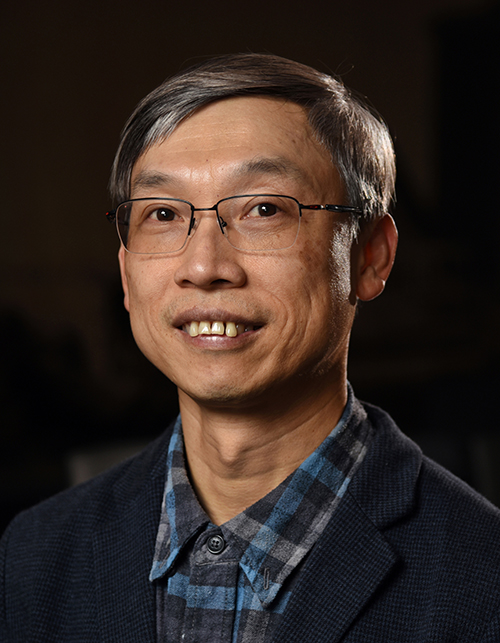"Recognition as a highly cited researcher requires multiple papers that rank in the top 1% each year, and only the very best scientists in the world attain this honor. Dr. Tran's accomplishment of this feat multiple times is indicative of his worldwide recognition and is a result of his exceptional research skills, leadership, and work ethic."
Lam-Son Phan Tran, a Texas Tech University College of Agricultural Sciences and Natural Resources expert in biotechnology and biological sciences, has been named among the world's most highly cited researchers in their respective fields for 2020.

The annual list is compiled by Clarivate Analytics, a company that provides scientific research and analytic services. The highly anticipated annual list identifies researchers who demonstrated significant influence in their chosen field or fields through the publication of multiple highly cited papers during the last decade.
Their names are drawn from the publications that rank in the top 1% by citations for field and publication year in Clarivate's Web of Science citation index.
"Recognition as a highly cited researcher requires multiple papers that rank in the top 1% each year, and only the very best scientists in the world attain this honor," said Glen Ritchie, chair of Tech's Department of Plant and Soil Science. "Dr. Tran's accomplishment of this feat multiple times is indicative of his worldwide recognition and is a result of his exceptional research skills, leadership, and work ethic. We are honored to have Dr. Tran as a member of our department, and we anticipate that he and his collaborators will direct cutting edge research for years to come."
Ritchie noted that this isn't the first time Tran has made it to the elite Clarivate Analytics listing. He was also named in 2019, 2018 and 2016.
Tran, a professor in Tech's Department of Plant and Soil Science, stepped into his new research and teaching post with Tech's new Institute of Genomics for Crop Abiotic Stress Tolerance last September. Led by Luis Rafael Herrera-Estrella, the high-profile research group examines how plants adapt to thrive in the presence of environmental stresses, such as extreme heat and cold, drought and in the presence of brackish water sources.
"This recognition shows CASNR faculty are among the world's best in their fields, with pioneering contributions advancing fundamental and applied sciences, and spurring technological innovation," said Cindy Akers, CASNR's Associate Dean for Academic and Student Programs.
Prior to arriving at Texas Tech, Tran served as unit leader of the Stress Adaptation Research Unit at the RIKEN Center for Sustainable Resource Science in Yokohama, Japan. Today, his Texas Tech research program broadly focuses on regulatory network and crosstalk among signaling molecules in plant responses to environmental stresses, as well as translational genomics for improvement of crop productivity in the era of global climate change.
His basic and applied research programs will contribute to some of the Sustainable Development Goals of the United Nations, which include maintaining sustainable production of crops for food, biomass and industrial uses.
One of his primary goals here at Tech is to further promote the research on plant functional genomics and regulatory roles of signaling molecules, leading to development of crop cultivars with enhanced environmental stress resistance. Importantly, he wants to pass his knowledge and research experiences to the next generation through teaching and training.
Clarivate Analytics officials noted that researchers on the list are selected for their exceptional influence and performance in one or more of 21 fields or across several fields. The methodology that determines the "who's who" of influential researchers draws on the data and analysis performed by bibliometric experts and data scientists at the Institute for Scientific Information at Clarivate. It also uses the tallies to identify the countries and research institutions where these scientific elite are based.
This story was first published in the CASNR NewsCenter. See the original article here.
